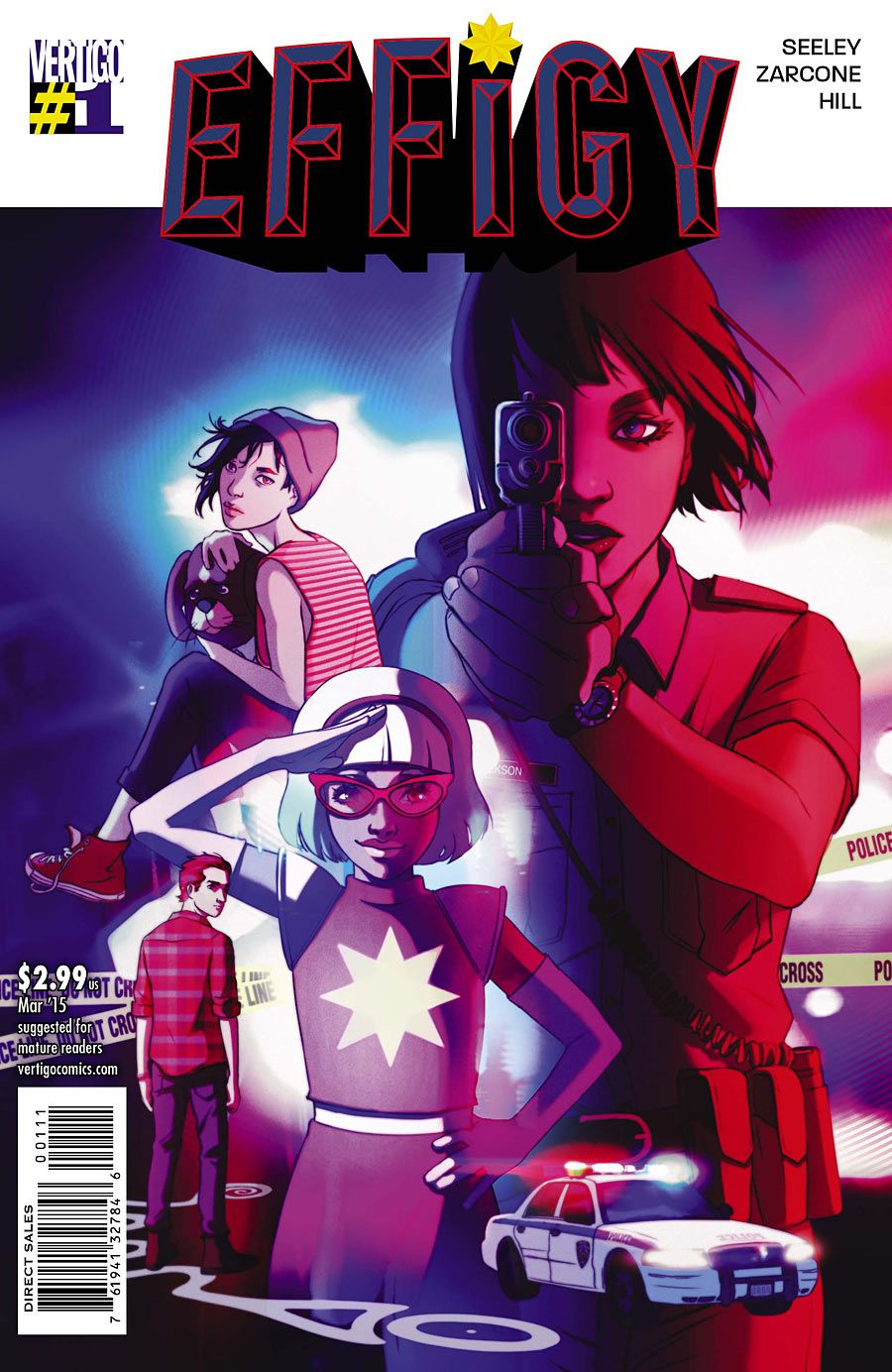The understated, effortless first issue of "Effigy" gets the ball rolling -- just not particularly quickly. Tim Seeley and Marley Sarcone spend most of issue #1 developing Chondra Jackson, former child star and current small-town cop, as she walks through her day-to-day world. They preview the series' other, stranger elements for a few pages, but this is mostly just a pleasantly paced and pleasingly complex introduction. "Effigy" #1 is more interested in Chondra than in the larger concept, and I ultimately think Seeley and Sarcone were smart to lean on her. Their complicated protagonist should carry the series through.
I'll admit to some creator and publisher bias in my analysis. Seeley's previous work has pleased me best when it's many issues deep, and I'm used to Vertigo structuring its titles for longer, slower arcs. Even without that, though, there's still an undeniable confidence to the cuts in "Effigy." The issue jumps from a fangirl prostitute's bedroom to a burial mound murder to the Maldives without blinking -- and it expects the reader to hop right along. Seeley doesn't spell much out, leaving hints that are obvious but never illuminating.
Artist Marley Sarcone's quiet, sensitive work is such an unexpected and ideal choice for this series. His eye for facial expressions and realistic gestures is an asset to this issue especially, where so much of the development is around the characters and their states of mind. After Chondra's sex tape is mentioned, the next page opens on her nine-panel "confession" to the reader. Sarcone captures all her wryness, embarrassment and self-awareness in his honest gestures and facial expressions. This might have been my favorite page in the issue; it says so much about Chondra, and it sends the message that she's the focal point of the story -- she's where the reader is meant to invest energy.
Sarcone and Seeley accomplish seamless, smart characterization throughout; everyone is surprisingly layered for a first issue. For example, Chondra's mother skirts close to stage-mom parody, but she also lets out motherly and shockingly morbid lines. Even Chondra herself is a complicated creature. When the paparazzi appear at a crime scene, she hides beside Detective Moore to evade them. She explains to him, "The idea is you just walk very close to an average-looking, unassuming person." Sarcone and letterer Jared K. Fletcher do wonderful work on this scene. Fletcher bolds the word "average," so the reader can practically hear the condescension in Chondra's voice, and Sarcone frames the panel around Detective Moore's utterly disinterested face. Even better, when it turns out that Detective Moore is the real out-of-town celebrity here, Chondra is noticeably disappointed. It's an illuminating counter to the likeable, self-deprecating Chondra seen earlier.
Colorist Ryan Hill also does gorgeous work here. I expected that the "Star Cops" scenes would be bright and easy, since they're set in a vintage children's show, but Hill carries that aesthetic into Chondra's much less fantastic reality as a small-town cop and "disgraced child star." Flatter, warmer colors keep this from feeling like a cop story at all and even the sordid scene with Chondra's obsessive fan is cast in a retro, fleshy pink.
Though this long establishing shot of an issue isn't a riveting opener, the sureness and smartness of "Effigy"#1 are great signs for the series to come. Chondra Jackson looks like she'll be a complicated, compelling protagonist, and she's got an interesting world to explore.

